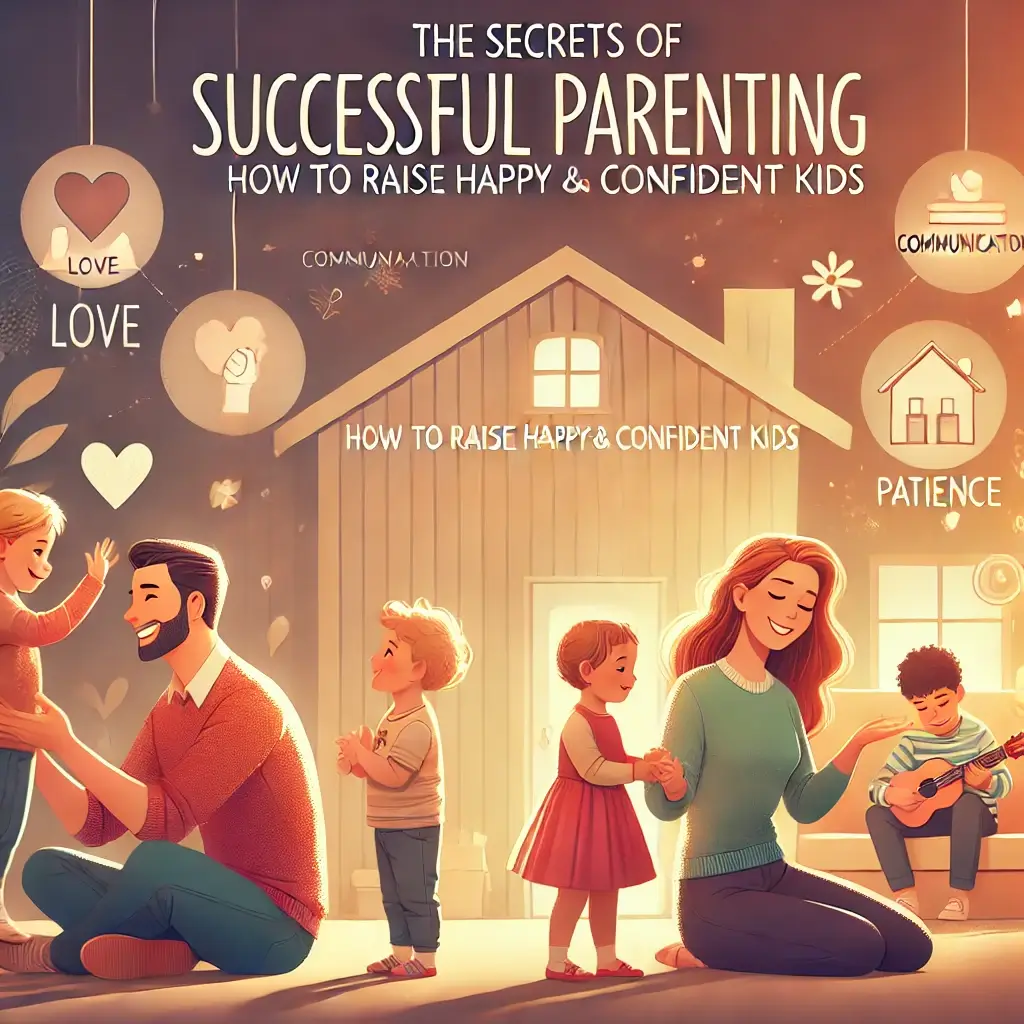-
How Digital Nomads Are Redefining Work and Lifestyle 🌍💻
Mar 06, 2025 | 39 Comments -
How Artificial Intelligence is Transforming Healthcare 🏥🤖
Mar 06, 2025 | 0 Comments -
How Cryptocurrency is Reshaping the Global Economy 💰🌍
Mar 06, 2025 | 0 Comments -
How to Build a Strong Personal Brand: Stand Out & Grow Your Influence 🚀📢
Mar 02, 2025 | 0 Comments -
The Power of AI in Business: How Artificial Intelligence is Transforming Industries 🚀🤖
Mar 02, 2025 | 0 Comments -
How Smart Homes Are Changing the Way We Live 🏡🔋
Mar 02, 2025 | 0 Comments -
How Electric Vehicles Are Revolutionizing Transportation 🚗⚡
Mar 02, 2025 | 0 Comments -
The Future of Renewable Energy: How Green Technology is Changing the World 🌍⚡
Mar 02, 2025 | 0 Comments

The Secrets of Successful Parenting: How to Raise Happy and Confident Kids 👶💡
👶💡 Parenting is one of the **most rewarding and challenging experiences** in life. Every parent wants to raise **happy, confident, and kind children**, but figuring out the best approach can be overwhelming. The truth is, **there’s no perfect formula**—but there are **proven parenting techniques** that can help you nurture a strong, healthy relationship with your child. Let’s explore **the secrets to successful parenting** and how you can apply them in daily life. 🚀
1. Building a Strong Parent-Child Connection 🤝❤️
A strong emotional bond is **the foundation of successful parenting**. When children feel **loved, valued, and secure**, they develop confidence and resilience. 🏆
1.1 Spend Quality Time Together ⏳
- 📖 **Read stories** together before bedtime.
- 🎨 **Engage in creative activities** like drawing, puzzles, or crafting.
- 🏞️ **Go for nature walks** and talk about their thoughts and feelings.
- 🍽️ **Have family meals together** without distractions (no phones!).
1.2 Listen and Communicate Openly 🗣️👂
Children need to feel **heard and understood**. Show them their voice matters by practicing **active listening**. 🔍
- 👀 **Make eye contact** and give them your full attention.
- 💡 **Acknowledge their feelings** ("I see you're upset. Do you want to talk about it?").
- 🔄 **Ask open-ended questions** ("What was the best part of your day?").
2. Encouraging Confidence and Independence 🌟
Confident children grow into **resilient, self-reliant adults**. Give them the tools to develop **self-esteem and problem-solving skills**. 🚀
2.1 Praise Effort, Not Just Results 🏆
Instead of saying **"You're so smart!"**, say **"I love how hard you worked on that!"** This teaches kids that effort **matters more than talent**. 💡
2.2 Let Kids Make Decisions 🎯
Give children **age-appropriate choices** to build confidence. Examples: 🏆
- 👕 **"Would you like to wear the red or blue shirt today?"**
- 🍎 **"Would you prefer an apple or banana for a snack?"**
- 📖 **"Do you want to do homework before or after dinner?"**
3. Teaching Positive Discipline & Emotional Intelligence 🧠💬
Discipline should **teach, not punish**. The goal is to help children learn **self-control, respect, and responsibility**. ✅
3.1 Set Clear Boundaries and Expectations 🚦
- 📜 **Make house rules simple & consistent** ("We treat each other with kindness.").
- 🎯 **Explain consequences** ("If you don’t clean up, you won’t get extra playtime.").
- 🤝 **Follow through** with rules consistently.
3.2 Teach Emotional Regulation 🧘♂️
Help children learn how to **manage big emotions** without tantrums. 🎭
- 🌬️ Teach **deep breathing** when frustrated ("Smell the flower, blow out the candle").
- 📖 **Use books and stories** to explain emotions.
- 🖍️ **Encourage drawing** or journaling to express feelings.
4. Encouraging Learning and Curiosity 📚✨
Curious children become **lifelong learners**. Foster an environment that **encourages exploration and creativity**. 🏆
4.1 Make Learning Fun 🎨
- 🔬 **Do simple science experiments** at home.
- 🎭 **Use storytelling and role-playing** to teach new concepts.
- 📚 **Visit museums, libraries, and nature parks** for hands-on learning.
4.2 Encourage Problem-Solving & Critical Thinking 🧠
Instead of giving answers, encourage kids to **think through problems** on their own. 🔍
- 💡 Ask, **"What do you think we should do?"** when they face challenges.
- 🧩 Let them **figure out puzzles and DIY projects**.
5. Leading by Example: Kids Learn What They See 👀
Children **copy what they observe**, so the best way to teach kindness, patience, and respect is to **model it yourself**. 🌟
5.1 Show Kindness & Empathy ❤️
- 💬 Speak respectfully, even when frustrated.
- 🤝 Help others and involve kids in giving back.
- 😊 Show appreciation—say “thank you” often.
5.2 Take Care of Yourself Too 🏋️♀️🧘♂️
A happy, healthy parent is a **better role model**. Don’t neglect your own self-care! ✅
- 🚶 **Take breaks** when needed.
- 🧘 **Manage stress** through healthy habits.
- 💬 **Ask for help** when overwhelmed.
Final Thoughts: Parenting is a Journey, Not a Destination 🛤️❤️
There’s no **one-size-fits-all** approach to parenting, but by focusing on **connection, confidence, discipline, learning, and leading by example**, you can create a **loving, supportive environment** where your child **thrives**. 🌱
What’s your best parenting tip? Share in the comments! 💬👶
0 comments
No comments yet. Be the first to comment!
Your comment